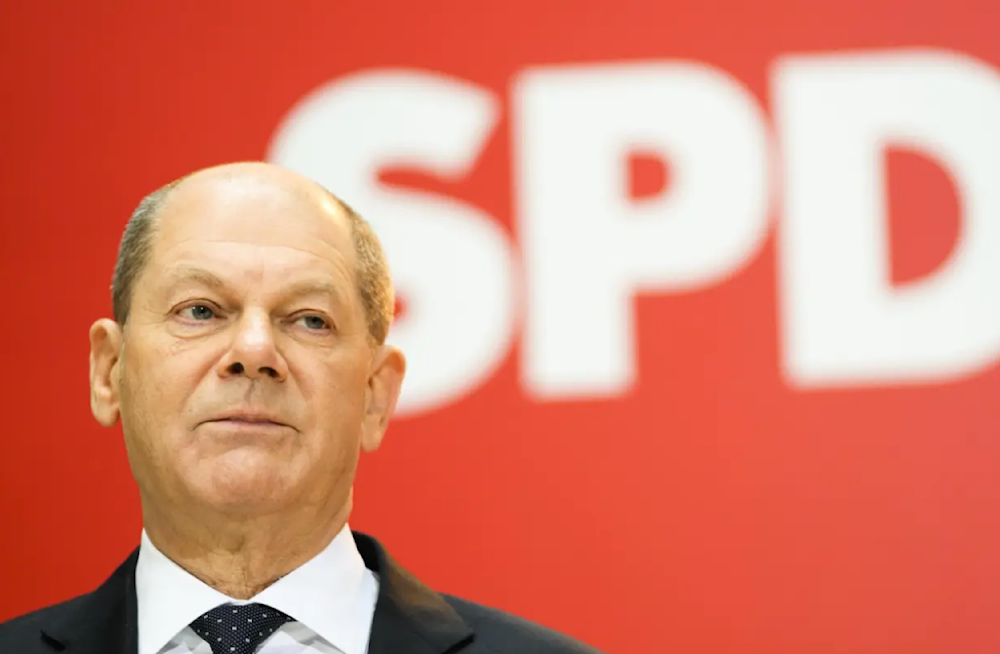Germany's economy to worsen in 2024
Brian Mangwiro, a fund manager at Barings, told Bloomberg that Germany's economy in particular is not only slowing like all manufacturing economies.
-

Designated new German chancellor Olaf Scholz presents the ministers of the Social Democratic Party, SPD, for the new German government during a news conference at the party's headquarters in Berlin, Germany on December 6, 2021 (AP)
According to Bloomberg, investors who lend money to German firms are now demanding higher interest rates than companies in the rest of the eurozone. This is due to several circumstances, including a weak economy, real estate issues, and Germany's reputation as having the highest corporate distress score in Europe.
This problem resulted from rising energy prices, which began when Germany joined the West's anti-Russia sanctions. As a result, the government was forced to shut off its supply of inexpensive gas to its energy-intensive industrial sector.
Brian Mangwiro, a fund manager at Barings, told Bloomberg that Germany's economy, in particular, is not only slowing like all manufacturing economies but is also facing challenges in the auto sector with competition coming from China,
“Germany is really in trouble…All the big manufacturing economies are slowing, but in Germany, this is compounded by higher energy costs. There are also challenges in the auto sector with competition coming from China."
While speaking at a Bloomberg event in Frankfurt, German Finance Minister Christian Lindner stated on Monday that the country's inability to generate growth in the economy is bringing more poverty.
Lindner, the leader of Germany's Free Democratic Party, expressed, “We are no longer competitive...We are getting poorer because we have no growth. We are falling behind.”
Businesses have borrowed far less money to invest in manufacturing, machinery, and technology. This demonstrates that Germany's economic development is stifled in the long run, since businesses are now more focused on solving their challenges.
Bloomberg reported that in January, the powerful figures at the World Economic Forum (WEF) in Davos were feeling pessimistic and it was clear that Europe's largest economy was experiencing instability and facing severe competition from other market participants in machine and automobile manufacture, notably in the sector of electric vehicles (EVs).
The situation has been exacerbated by interest rate increases over the previous two years, indicating failures in the German housing market. Bloomberg statistics show that more than $13.6 billion in loans and bonds issued by the country's corporations were distressed in January, which is 13 times the amount in Italy. According to research by consulting firm Alvarez & Marsal, almost 15% of enterprises in the recession-hit nation are in danger.
Furthermore, Germany is experiencing a budget crisis. Chancellor Olaf Scholz's coalition government overcame the arduous task of enacting this year's budget, but there is still a €20 billion shortfall in the budget predicted in 2025, according to people familiar with the figures.

 3 Min Read
3 Min Read








